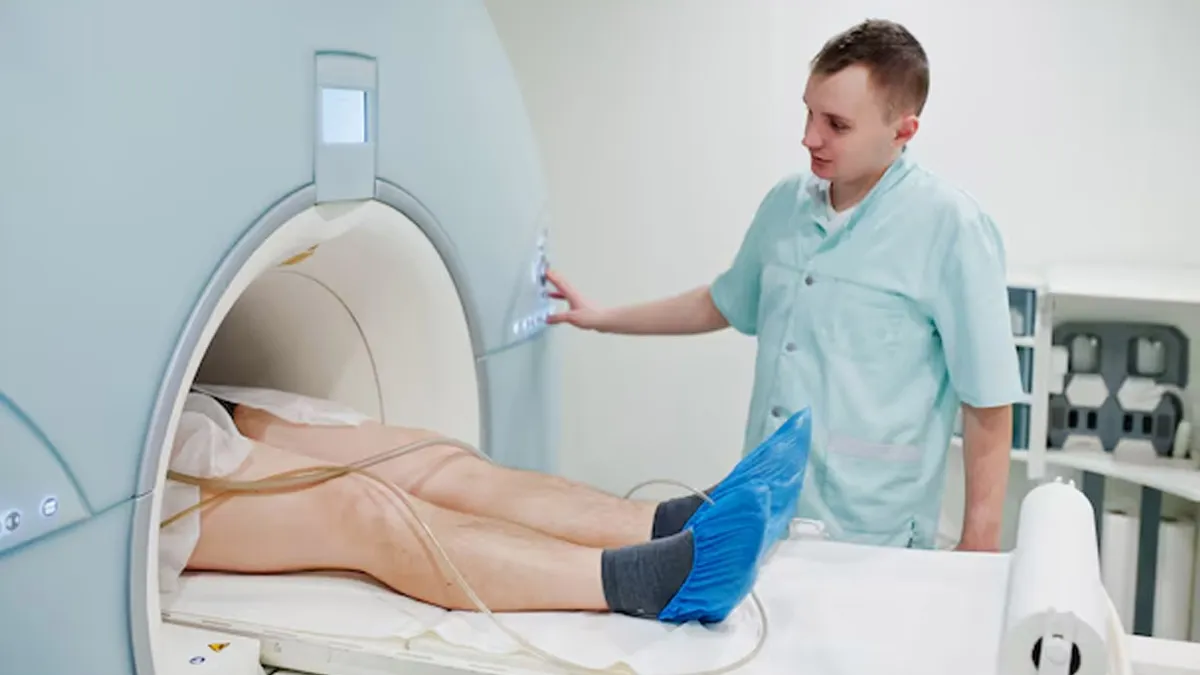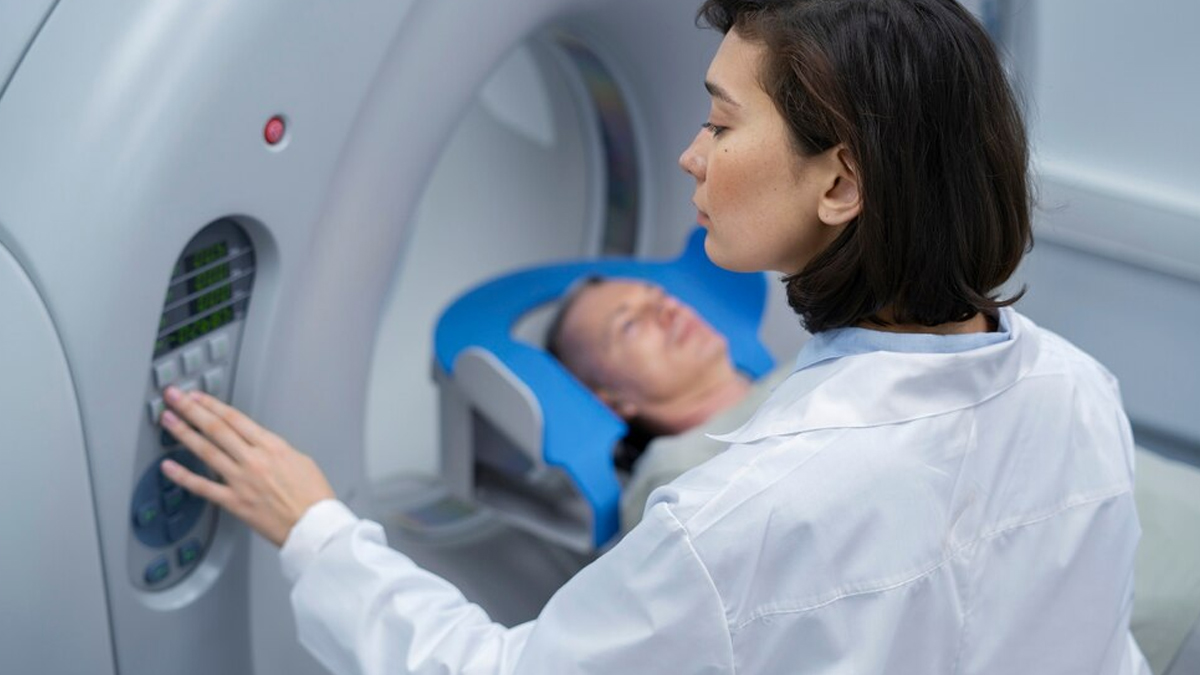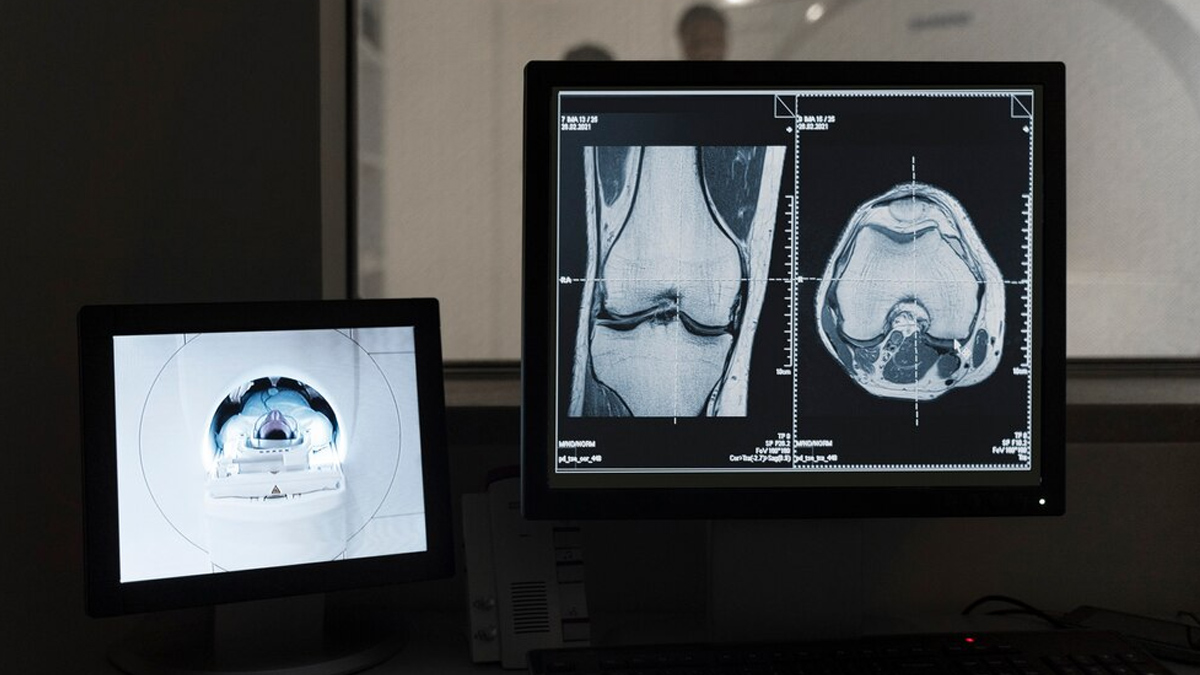
Certain conditions require a thorough diagnosis that can solely be ascertained by MRI scans. However, as easy as it may seem to get a non-invasive diagnostic procedure done, MRI scans bring about feelings of apprehension and worry. The fear of a last stage diagnosis, a feeling of unpreparedness, pangs of anxiety that make you feel like something might go wrong or irrational fears of getting stuck inside and so on.
Table of Content:-
CHECK YOUR
MENTAL HEALTH

It is normal to experience anxiety before and during an MRI scan. It is not easy to stay still for 45 minutes with loud and bizarre sounds blaring in your ears. To alleviate your fears and help you learn ways to soothe your anxiety before going for an MRI scan, the OnlyMyHealth team connected with Dr. Rajiv Mehta, Vice-Chairperson, Psychiatry, Sir Ganga Ram Hospital, New Delhi.
RELATED: When Is The Right Time To See A Neurologist For Headaches? Watch Out For These Signs
Why Do We Feel Anxious Before An MRI?

Dr. Mehta explains, “Anxiety before an MRI scan can arise from two primary reasons,
1. Fear of Results
“Anxiety may stem from assumptions that something bad might be discovered. This fear can be addressed by directly asking questions to the doctor who ordered the MRI instead of turning to web searches, which often provide unfiltered information and can worsen existing anxiety.”
2. Claustrophobia
Claustrophobia, or the fear of tight spaces, is another major reason for MRI-related anxiety.
What Is Claustrophobia?
-1737002564231.jpg)
The situational phobia known as claustrophobia is brought on by an unreasonable and severe fear of confined or crowded areas. Things like being trapped in a packed lift, being locked in a room without a window, or driving on a busy highway can all cause claustrophobia.
It is one of the most prevalent phobias. Despite not being a panic disorder, claustrophobia can make you feel as though you're having a panic attack.
Why You Should Avoid Self-Diagnosing Yourself?

Self-diagnosis occurs when an individual identifies a medical condition affecting themselves. This can be done by studying medical libraries, internet research, or examining personal experiences. Due to a lack of accuracy, external influences, and biases, self-diagnosis can be very dangerous and unsafe.
Self-diagnosing with internet resources raises a number of issues, such as:
Being Excessively Certain- You could get certain that you have a particular condition based on what you've read and ignore other potential causes.
Unnecessary Scares- When you experience symptoms that scare you, it's simple to focus on the worst-case scenario. This may cause excessive distress.
Unnecessary Tests- You risk squandering time and money if you become obsessed with a diagnosis you made online and insist on tests you don't need.
Untrustworthy Sources- A website may not necessarily appear trustworthy just because it looks that way. This may cause you to make incorrect inferences.
Confirmation Bias- This occurs when people are attracted to websites that support their preconceived notions, such as the idea that they are dying or that they may be treated with dubious medical procedures.
Unverified Treatments- Supplements, herbal cures, and other alternative medications may cause unanticipated toxicities, side effects, and interactions when used to treat a suspected ailment.
Tips To Soothe Your Anxiety Before Getting An MRI
-1737002601042.jpg)
Shut your eyes, make sure your jaw is relaxed, and pay attention to your tongue resting on the floor of your mouth. Put on a sleeping mask before the bed slides into the bore if you have claustrophobia. This will prevent you from seeing the cramped area and from being tempted to peek around, which could happen if you just closed your eyes.
Adding to this, Dr. Mehta emphasises that you should see a doctor in advance if you have generalised anxiety and claustrophobia is a contributing factor. Additionally, if situational anxiety is present right before an MRI scan, you can ask the doctor to prescribe a short-acting anti-anxiety medication specifically for the purpose of having an MRI or you can practise deep breathing for a few minutes.
When it comes to maintaining composure during an MRI, another excellent choice is to have a friend or relative present for emotional support. The presence of a familiar face could also aid in alleviating your fears. As you rest and remain still, bring someone with whom you can be yourself and who will let you forget about other things.
Finally, it is imperative to remember that this MRI scan will assist in diagnosing injury or pain in the spine, joints, limbs, or pelvis, which will ultimately benefit you by lessening your pre-existing fears!
Also watch this video
How we keep this article up to date:
We work with experts and keep a close eye on the latest in health and wellness. Whenever there is a new research or helpful information, we update our articles with accurate and useful advice.
Current Version